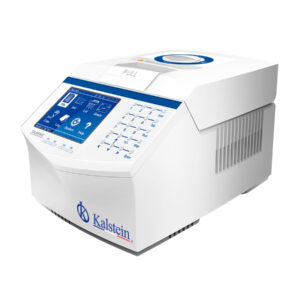Monkeypox, or seismic smallpox, is a viral disease where a person has symptoms of fatigue, fever, muscle aches and rash in the body. This virus, originated by Orthopoxvirus, has similarity with traditional smallpox, however, it is considered less severe. Monkeypox, as its name suggests, is related to them, but these animals are not the only carriers of the virus, according to studies, so are rodents.
The way monkeypox is spread is by contact with animals or people who carry the virus. This can happen by touching saliva, body fluids, scabs, rash, urine, feces, also through close contact with animals such as hugging, kissing, licking or caressing. Symptoms will appear three weeks after exposure to the virus.
For monkeypox to be diagnosed, a polymerase chain reaction (PCR) test is needed to identify a piece of genetic material in a germ. Nowadays this technique is used to detect this disease, thanks to its accuracy and precision, turning it into a specific test where a positive result automatically confirms that the virus is present.
Benefits of Monkeypox PCR
The polymerase chain reaction (PCR) test is a method used to diagnose monkeypox. PCR uses skin lesions as a sample, for example, of fluid from vesicles and pustules or dry crusts because they are better than blood samples. The aim of this test is to detect a fragment of genetic material, which is amplified and then detected.
Monkeypox is usually mistaken for varicella zoster because of its similarity to the febrile rash. Clinical diagnosis of monkeypox based only on eruptions in the early stages can be difficult, however, the difference between the symptoms and signs possessed by both viruses can allow a presumptive diagnosis, however, is not sufficient for a definitive diagnosis. Thus, a polymerase chain reaction (PCR) test is needed to confirm the virus in the patient. Some of the benefits that PCR has for the diagnosis of monkeypox are:
- Only one test is needed to diagnose the virus.
- Delivers an effective result in 90 minutes.
- It can distinguish between different diseases despite their similar symptoms.
- Allows diagnosis of mixed infections.
PCR Thermocycler
The thermocycler is an instrument used in the field of molecular biology to carry out the amplification of different strands of DNA in the polymerase chain reaction test, known as PCR. A common thermocycler model consists of an electrical resistance block that, through a plate, allows temperature cycles during programmable times. The temperature ranges a thermocycler works with are between 4° C and 96° C. During the different cycles denaturation and extension of a DNA molecule occurs.
On the other hand, the PCR test has many applications in basic and applied research, for example, allows the detection and control of DNA fragments, serves as a tool for the diagnosis of hereditary diseases present in the genome, serves for the genotyping of species that produce infectious pictures and allows the recovery of scarce amounts of DNA.
Kalstein brand thermocyclers
At Kalstein we are MANUFACTURERS of thermocladors, as well as a wide range of laboratory equipment, useful in the area of science and medicine. Our equipment has as distinctive to be of a high quality and technology, with the most economical PRICES you can find. If you are interested in BUYING any of our equipment, you can find various models in our catalog, by visiting the following link HERE. We have real-time thermocyclers and PCR available for sale, these will allow you to perform temperature cycles to perform the polymerase chain reaction. Our YR series thermo-cycler has the following characteristics:
- Comfortable and flexible module change.
- The airtight seal protects consignment TEs, maximizing their life.
- Two-stage hot cap pressure regulator, supports good sealing performance.
- The gold or silver module improves the efficiency of heat conduction.
For information on our other products, see HERE

